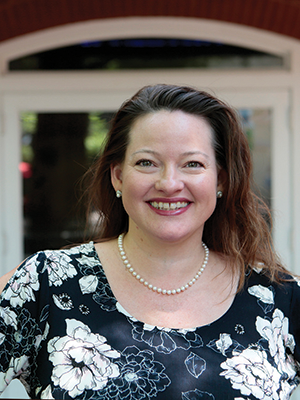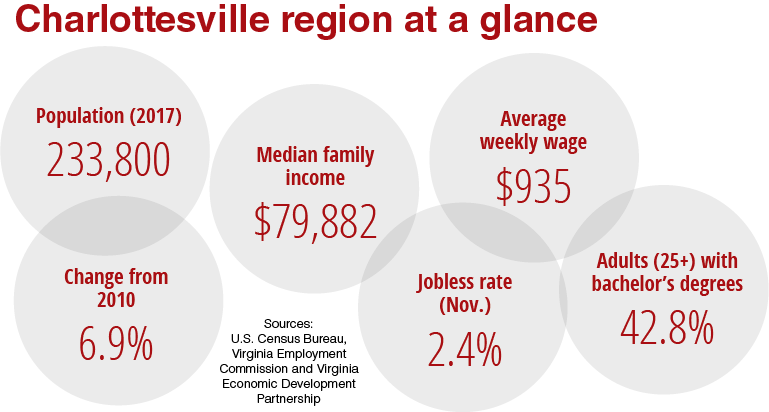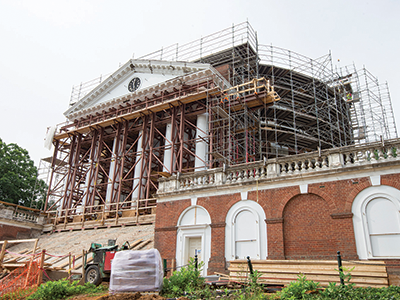A new story line?
Nightmarish events overshadowed area’s growth as a hotspot for entrepreneurs
A new story line?
Nightmarish events overshadowed area’s growth as a hotspot for entrepreneurs
The Charlottesville area finally is emerging from a series of nightmarish events that grabbed national headlines.
Local leaders now are ready for the region to makes news for another reason — its increasing momentum as a launching pad for entrepreneurs.
The past 12 months saw continued fallout from a debunked Rolling Stone magazine story about a gang rape at the University of Virginia and the sentencing of a serial killer who stalked his last victim on Charlottesville’s downtown mall.
A Charlottesville police investigation could find no evidence of the gang rape, but the controversy now continues in federal court. Nicole Eramo, a University of Virginia administrator, claims Rolling Stone defamed her and filed a $7.85 million lawsuit.
Tim Hulbert, the head of the Charlottesville Regional Chamber of Commerce and a keen observer of life in the Charlottesville area, says he was “rooting for the lawsuit. When that [article] came out, it sullied our community and law enforcement.”
Meanwhile, Jesse Matthew Jr. pleaded guilty to killing Morgan Harrington, a Virginia Tech student who vanished after a 2009 Metallica concert in Charlottesville, and Hannah Graham, a U.Va. student who was murdered in 2014 after being abducted from the city’s downtown mall. As part of the plea agreement, Matthew, a former cab driver and hospital orderly, was sentenced in March in to four life terms with no possibility of parole.
While those incidents are largely behind it, Charlottesville continues to have local controversies. Vice Mayor Wes Bellamy held a contentious news conference recently in front of the equestrian statue of Confederate General Robert E. Lee. Characterizing the statue as a symbol of a racist past, he called for its removal. People opposed to that move — asserting the statue represents Southern heritage and American history — waved Confederate flags as Bellamy spoke.
In early May, City Council voted to create a commission that will recommend whether or not the city should remove its Confederate memorials. The commission’s report, which will have public input, is due by Nov. 30.
A business ‘hotbed’
 These controversies overshadowed the region’s growing reputation as a home to entrepreneurs and innovators. Tracey L. Greene, executive director of the Charlottesville Business Innovation Council (CBIC), describes Charlottesville as a “hotbed … of startups and innovative businesses with intellectual property at its core.” The CBIC’s mission is to accelerate technology innovation and entrepreneurship in the region.
These controversies overshadowed the region’s growing reputation as a home to entrepreneurs and innovators. Tracey L. Greene, executive director of the Charlottesville Business Innovation Council (CBIC), describes Charlottesville as a “hotbed … of startups and innovative businesses with intellectual property at its core.” The CBIC’s mission is to accelerate technology innovation and entrepreneurship in the region.
Greene founded the Charlottesville Angel Network (CAN) last year, and qualified investors have already invested $1 million in 10 companies, she says. CAN includes high-net-worth individuals and successful entrepreneurs who meet monthly to evaluate early-stage companies.
U.Va. has helped fuel the innovation boom with assistance to promising startups at its i.Lab at the Darden School of Business. One beneficiary is Charlottesville-based KiraKira, which also has an office in San Francisco. Co-founder and CEO Suz Somersall says the firm aims to make technology and design programs more accessible to women.
 KiraKira offers online classes that essentially help empower women by teaching them how to design jewelry using 3-D printers. “We’re targeting young women and introducing the concepts behind engineering,” says Somersall, a Brown University graduate who is a jewelry designer. “The skills and concepts they learn are transferable to engineering and architecture.”
KiraKira offers online classes that essentially help empower women by teaching them how to design jewelry using 3-D printers. “We’re targeting young women and introducing the concepts behind engineering,” says Somersall, a Brown University graduate who is a jewelry designer. “The skills and concepts they learn are transferable to engineering and architecture.”
Somersall says Charlottesville is “incredible in terms of advisers and potential investors. I can’t think of a better place to innovate … it’s a city full of brilliant people.”
Venture capital also is pouring into the region. A recent report by the National Venture Capital Association found that nine companies in the Charlottesville metro area received $27.7 million in venture funding last year. The total includes $16.5 million invested by Chevy Chase, Md., venture capital firm New Enterprise Associates in Charlottesville-based PsiKick, which makes self-powering wireless sensors for “Internet of Things” applications.
Charlottesville ranked first out of 133 metro areas in both the greatest growth (55.2 percent) and the greatest rate of growth as measured by venture investment dollars with a 156.5 percent increase since 2010, says Greene.
Greene says the Charlottesville region is popular with entrepreneurs because of its “small-town feel combined with lots of savvy people.”
$87 million in investment
 Chris Engel, Charlottesville’s economic development coordinator, says the city’s economy is “vibrant and robust” with the “epicenter of activity around the downtown area.”
Chris Engel, Charlottesville’s economic development coordinator, says the city’s economy is “vibrant and robust” with the “epicenter of activity around the downtown area.”
About $87 million in commercial investment was spent in the city last year — one of its highest levels ever. “That $87 million means people are building for business purposes, and that connects to the job growth,” says Engel.
Most of the job growth is coming from “small, fast-growing, gazelle-like companies” that are adding 10 to 15 jobs a year, says Engel. They include companies like Apex Clean Energy, Relay Foods and WillowTree, a 9-year-old company that develops apps and already boasts more than 140 employees.
The hospitality sector is especially hot, Engel adds, noting that a significant part of the commercial investment came from the recent opening of a new Marriott Residence Inn on West Main Street. A Fairfield Inn and Suites also is planned for the corner of Ridge Street and Cherry Avenue, driven by the city’s hotel occupancy rate of about 70 percent year round.
U.Va. is partly responsible for that occupancy rate but so is “historical tourism” and four major Charlottesville festivals held each year that celebrate books, movies, photography and entrepreneurs, drawing tens of thousands of people into the city.
The city’s business vacancy rate sits at 3.5 percent with the rate dropping to 2.6 percent around the downtown area, says Engel. He admits that the city is facing a parking problem downtown but adds, “it’s a good problem to have. People want to be there.”
Rotunda project continues
 At U.Va., construction is going on as always. The second phase to renovate U.Va.’s iconic Rotunda is underway. The $42.5 million project includes updating utility systems, restoring historical features and reviving the building’s initial use as the center of academic and student life. That means adding classrooms and increasing access and programming. The first phase of the project, completed in spring 2013, included installing a new copper roof and making extensive masonry repairs.
At U.Va., construction is going on as always. The second phase to renovate U.Va.’s iconic Rotunda is underway. The $42.5 million project includes updating utility systems, restoring historical features and reviving the building’s initial use as the center of academic and student life. That means adding classrooms and increasing access and programming. The first phase of the project, completed in spring 2013, included installing a new copper roof and making extensive masonry repairs.
Counties surrounding Charlottesville are also making news.
In Fluvanna County, land use has become an issue. The land use program, which helps preserve rural spaces, cost the county about $2.7 million in uncollected taxes last year. That translates into about 10 cents of the tax rate. Supervisor Tony O’Brien recently raised questions about land use. “I’m not against land use per se, but I wonder if it’s a good deal for the county.” Supervisors plan to look closer at the issue.
Nelson County, which over recent years has become home to a number of craft breweries, has attracted the attention of beer giant Anheuser-Busch. The company has agreed to acquire Devils Backbone Brewing Co. in Roseland.
Some craft beer fans have bemoaned the loss of Devils Backbone from the ranks of upstart breweries. On the other hand, however, the deal recognizes Devils Backbone’s achievements since its founding in 2008. Now its beer should be available nationwide.
In other words, a Charlottesville-area startup has become a national success. That’s the kind of news the region can build on.




















